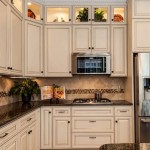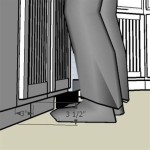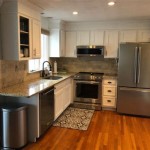Essential Aspects of LED Lighting for Kitchen Units
LED (light-emitting diode) lighting is a highly efficient and versatile option for illuminating kitchen units. It offers numerous advantages over traditional lighting sources, making it an ideal choice for enhancing both the functionality and aesthetics of your kitchen.
Here are some essential aspects to consider when selecting LED lighting for kitchen units:
Color Temperature
Color temperature refers to the warmth or coolness of the light emitted. For kitchen units, a neutral white color temperature (around 4000K-5000K) is often preferred. It provides ample illumination without being overly harsh or glaring.
Light Output
Measured in lumens, light output determines the brightness of the light. For under-cabinet lighting, 300-500 lumens per foot is generally sufficient. For task lighting, such as over a kitchen island, higher light output (600-800 lumens per foot) may be required.
Beam Angle
The beam angle refers to the spread of light emitted by the LED fixture. A narrow beam angle (around 30-60 degrees) provides focused illumination, suitable for task lighting. A wider beam angle (around 90-120 degrees) is better for general area lighting.
Dimmability
Dimmable LED lighting allows you to adjust the brightness of the light to suit different needs. This feature is particularly useful in kitchens where you may want to create a cozy ambiance or increase illumination for specific tasks.
Energy Efficiency
LED lighting is renowned for its energy efficiency. Compared to traditional lighting sources, LEDs consume significantly less power while providing equivalent or even higher light output. This can lead to significant energy savings over time.
Mounting Options
LED fixtures for kitchen units come in various mounting options. Under-cabinet lights can be surface-mounted, recessed, or mounted on a track system. Strip lights are ideal for mounting along the underside of cabinets or shelves.
Additional Considerations
Aside from these essential aspects, other factors to consider include:
- Lifespan: LED fixtures typically have a long lifespan, exceeding 50,000 hours.
- CRI (Color Rendering Index): CRI measures how accurately colors are rendered under the light. A higher CRI is preferable for kitchens where color accuracy is important.
- IP Rating: This rating indicates the fixture's resistance to moisture and dust. For kitchen environments, a higher IP rating (IP44 or above) is recommended.
By carefully considering these essential aspects, you can choose LED lighting for kitchen units that meet your specific requirements and elevate the overall functionality and ambiance of your kitchen space.

How To Choose And Install Led Strip Lights For Kitchen Cabinets

25 Best Kitchen Lighting Ideas 2024 Moonbeam Lightingmoonbeam Blog

How To Choose And Install Led Strip Lights For Kitchen Cabinets

25 Best Kitchen Lighting Ideas 2024 Moonbeam Lightingmoonbeam Blog

Kitchen Cabinet Lighting Ideas For Your Home Design Cafe

Kitchen Under Unit Pelmet Plinth Display Cabinet Energy Saving Led Strip Lights

Pin On Home Decor

Kitchen Cabinet Lighting Using Warm White Led Strip Lights

Decorate The Kitchen With Under Cabinet Led Strip Lighting Govee

Kitchen Cabinet Lighting Ideas For Your Home Design Cafe
Related Posts








